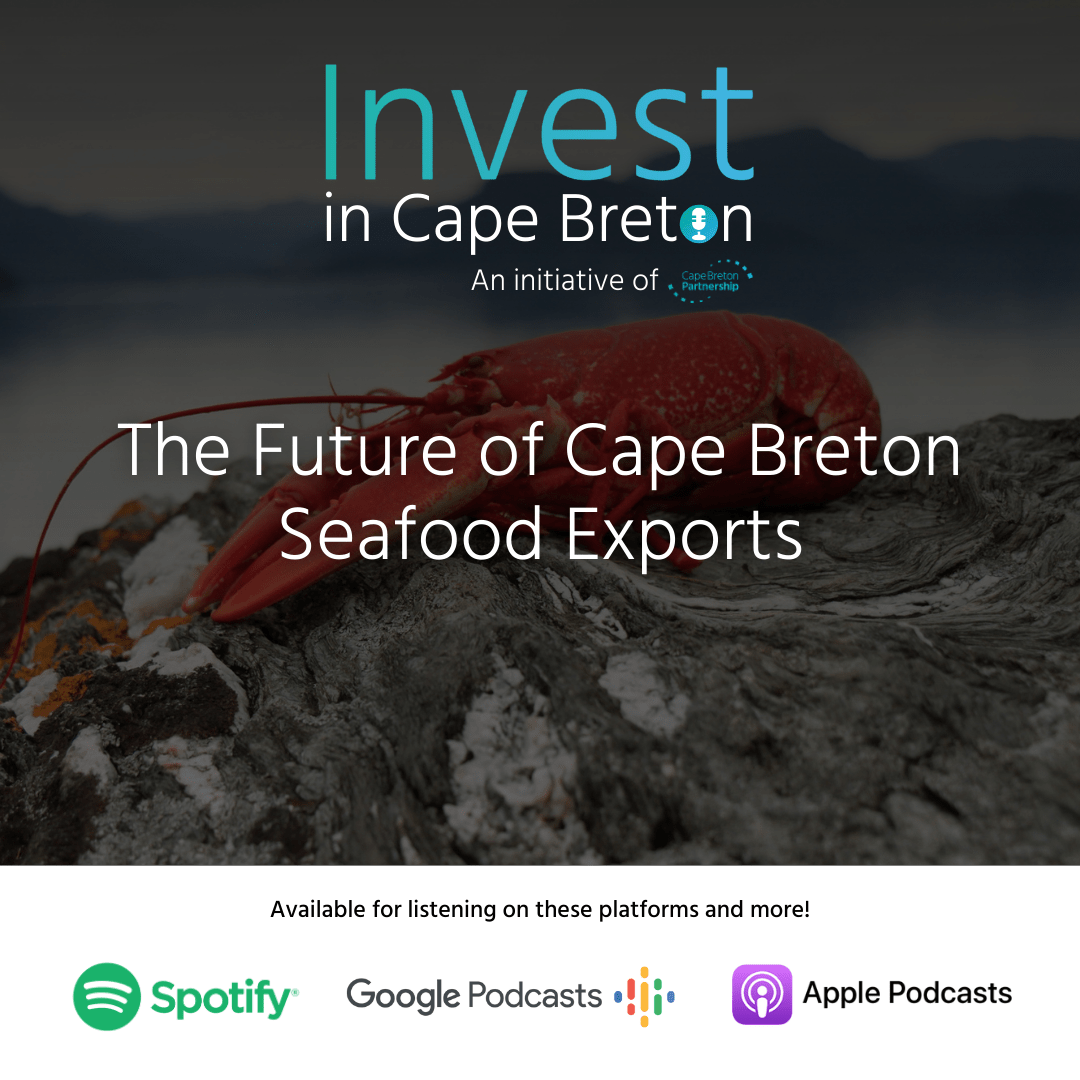

Invest in Cape Breton: The Future of Cape Breton Seafood ExportsMay 14, 2025
Produced by Michelle Samson, Storied Places Media

The seafood industry has a long and rich history in Unama’ki – Cape Breton. The island exports an estimated $342 million dollars worth of lobster, snow crab, and other species, much of it processed by one of the island’s eleven active processing facilities. How are tariffs—both real and potential—affecting local seafood exports? How are processors navigating market uncertainty? What are the opportunities hiding in this crisis? In Episode 7 of Invest in Cape Breton, Victoria Co-operative Fisheries General Manager Osborne Burke and Louisbourg Seafoods Sales Manager Shaowei Xu lend their insights.
This episode is brought to you by Victoria Co-operative Fisheries, seafood harvesters and processors since 1955. Their progressive Cape Breton co-op works with community harvesters to bring the freshest, tastiest seafood to markets all over the world.
Listen now, or read on for a few highlights.
The Impact of Tariffs on Exports
The seafood value chain in Cape Breton is currently grappling with the looming spectres of tariffs. Since January 2025, the possibility of tariffs from the U.S. has been on the table. Meanwhile, a tangible 25% tariff from China has put a strain on the island’s fisheries.
Shaowei says Louisbourg Seafoods is heavily reliant on the Chinese market for its lobster and whelk sales, and an already-shrinking market is likely to shrink further as tariffs increase prices. Victoria Co-op Fisheries doesn’t sell directly to China but may be indirectly impacted as some of their buyers repack their lobsters and ship them by air to China. The threat of U.S. tariffs has both processors accelerating their efforts to find new markets.
Market Diversification
In response to these challenges, both Louisbourg Seafoods and Victoria Co-operative Fisheries have turned their sights toward market diversification. Shaowei says international trade shows and missions to Asia and Europe that were once part of Louisbourg Seafoods’ medium term plans have a new urgency to them. The company is also exploring opportunities in Ontario and elsewhere in Canada.
The Co-op is aggressively working to flip the 65% share of its products going to the U.S. to any market but the U.S. He sees promising opportunities domestically as well as in Asia and Europe where Canada has free trade agreements. In emerging markets like Vietnam or Taiwan with large populations and an appetite for premium seafood, Osborne says one good customer can go a long way.
Innovations in Processing and Packaging
Capitalizing on processing and packaging innovation, Victoria Co-operative Fisheries has already begun expanding its product range. From retail-friendly packaging sizes to more value-added processing, these shifts are designed to add increased value to each pound of seafood processed, compensating for potential quota reductions and market shifts.
Overcoming Operational Hurdles
Beyond tariffs, the seafood industry in Unama’ki – Cape Breton faces operational challenges at the grassroots level—from labor shortages to housing constraints for temporary workers. Both Shaowei and Osborne highlight these persistent hurdles, urging supportive government policies to facilitate immigration, workforce development, and infrastructure investments.
Resilience and Optimism
Despite these challenges, both Osborne and Shaowei express resilience and cautious optimism, rooted in the industry’s history of resilience and an adaptable workforce.
Subscribe to the Invest in Cape Breton podcast
New episodes of Invest in Cape Breton are coming. Subscribe or follow now on your favourite podcast platform to be notified when they drop. If you’re enjoying the series, consider leaving us a rating or review.